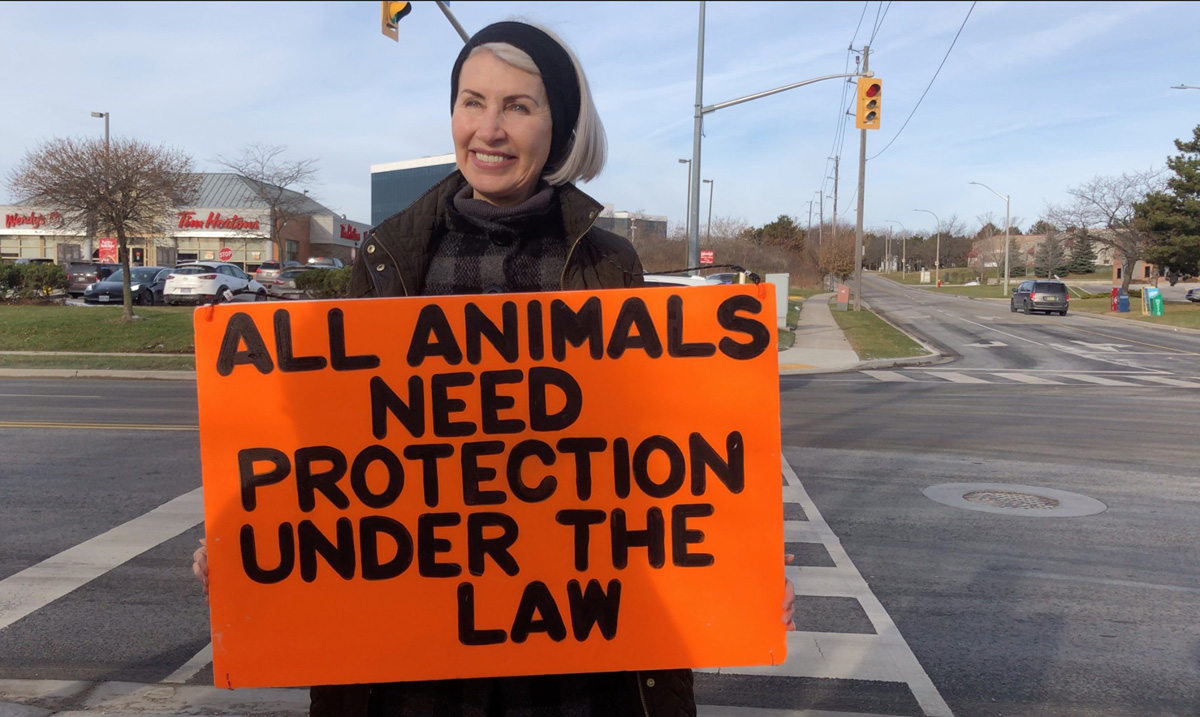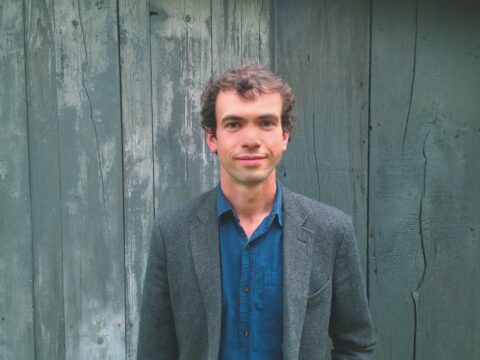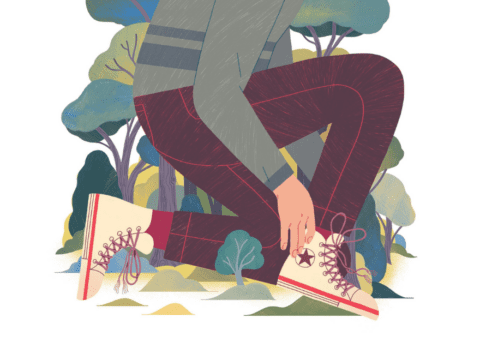This story was originally presented as part of a 6-Minute Memoir event on the theme of “Turning Point,” held last February on Zoom. Described as “speed storytelling for a cause,” the live events feature a dozen presenters sharing personal experiences in six minutes or less, with all proceeds going to charity.
In June 2020, 65-year-old animal rights activist Regan Russell was run over by a truck during a protest outside a slaughterhouse in Burlington, Ont. Her 91-year-old father, Bill, shares the impact his daughter had on him.
Nineteen eighty-seven was a big year in my life. It was a turnaround year, the second year of my retirement, and my wife, Patricia, and I were going to England to visit friends. Our elder daughter, Regan, drove us to the airport. Just as we were about to go through security, Regan asked me, “Oh, Dad, do you have any reading for the plane?” I told her I had forgotten to bring something. She said, “Well, I have a book here you might enjoy.” I took the book, which was called Animal Liberation by Peter Singer, and thanked her.
Two weeks later, I had read it and the effect on me was immediate. I was now vegetarian and chomping at the bit to take part in animal-activist enterprises. When we got back from our trip, Regan told me that we’d be going on our first fur protest just before Christmas. It would be at Eaton’s in Toronto’s Eaton Centre.
Regan organized it, and 20 of us met outside the department store. We strolled into the fur salon, mingled with the customers and promptly sat on the floor, saying nothing. As you can imagine, security was there almost immediately. “Out or you’ll be taken out,” they instructed us. We said nothing.
Security returned with the manager who said the same thing, but even more emphatically. He told us, “As a matter of fact, the people who are going to take you out are arriving now: the police.”
The police asked us to leave. We refused simply by staying there. So each one of us was helped up and out. Two police wagons were there — one for women and one for men — and we were escorted to the central police station. I was scared. To make matters even scarier, a local television station recorded it all and aired our protest during the evening news.
At the police station, we were in two different cell rooms. I felt uncomfortable. I felt like a little child. I had been the one in Regan’s life who had always been the boss. I had been her father. I taught her to drive. I had also been her teacher in grades 7 and 8. Being in charge meant I was the one who called the shots. But that day, Regan was the boss and she was as cool as a cucumber.
More on Broadview:
- Are vegans right?
- The moment trusting my instincts may have saved my life
- Education changed my life when I was in jail
The police held us for two hours, took all of our particulars and then gave us a stern admonishment to not do this type of thing ever again. We said nothing. We just left quietly, thankful that it was all over.
On the way home, I asked Regan, “Do you think it will have any effect?” She said, “Dad, every protest has an effect, and you’ll soon see.”
We have seen. The value of the fur industry dropped dramatically in 1988. Since then, fur farming has been banned in Britain, Belgium, Germany and the Netherlands. France has announced it will do the same, with all of the country’s mink farms to be shut down by 2025.
Unfortunately, Regan wasn’t able to see the recent effects of our protests. She would have been so proud and so happy to know they had worked.
***
Bill Russell is a retired principal and teacher in Hamilton.
This essay first appeared in Broadview’s January/February 2022 issue with the title “Ripple effect.”
















As much as I believe that all living creatures need to be treated with the utmost care and concern, I also believe that their presence on earth is one of an interconnected relationship between all of what is part of our planet’s ecosystems. If lions must eat gazelles in order to survive then this is an undisputed fact of life for them on our planet. For the lions survival, they must kill and consume the flesh of another. The same is true of humans, I believe and if our survival means that certain animals must be killed for their meat, or for their fur, then this is an undeniable fact that goes back to the beginning of time itself. Sure, the respectful, and non-manipulative treatment of such animals needs to be first and foremost on the list of requirements for using them as foodstuffs, and which is modelled through many traditional indigenous cultural and spiritual beliefs worldwide, but to completely stop the practice of eating animals for food on a global scale would put an even more unsustainable burden on our planet to produce edible plants for humans than we could ever imagine. We would essentially be cutting ourselves off from food sources that animals are able to supply for us by converting forages that are not safe for human consumption in their natural forms. In the end, the balance between sustainability and the natural sources of foodstuffs that includes all things on our planet and the expectation that we can never eat animals as part of our existence will leave us with a whole lot of other dilemmas that we haven’t even thought about yet in my opinion. What happened to Regan is of course tragic, and her willingness to raise awareness about the proper treatment of animals is a very important issue that needs to also be addressed, however, the need to explore what was at the root of this tragedy remains a most controversial subject when it comes to how all species are able to survive and cohabitate harmoniously in our complex world of ours.
Bill Russell.. is remembered.. by yours truly.. as.. a compassionate school Principal.. and also.. a kind.. and generous man.